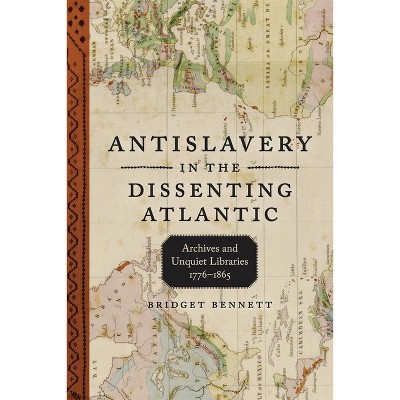Sponsored

French Connections - by Andrew N Wegmann & Robert Englebert (Paperback)
In Stock
Sponsored
About this item
Highlights
- French Connections examines how the movement of people, ideas, and social practices contributed to the complex processes and negotiations involved in being and becoming French in North America and the Atlantic World between the years 1600 and 1875.
- About the Author: Robert Englebert is associate professor of history at the University of Saskatchewan, Canada.
- 276 Pages
- History, United States
Description
Book Synopsis
French Connections examines how the movement of people, ideas, and social practices contributed to the complex processes and negotiations involved in being and becoming French in North America and the Atlantic World between the years 1600 and 1875. Engaging a wide range of topics, from religious and diplomatic performance to labor migration, racialization, and both imagined and real conceptualizations of "Frenchness" and "Frenchification," this volume argues that cultural mobility was fundamental to the development of French colonial societies and the collective identities they housed. Cases of cultural formation and dislocation in places as diverse as Quebec, the Illinois Country, Detroit, Haiti, Acadia, New England, and France itself demonstrate the broad variability of French cultural mobility that took place throughout this massive geographical space. Nevertheless, these communities shared the same cultural root in the midst of socially and politically fluid landscapes, where cultural mobility came to define, and indeed sustain, communal and individual identities in French North America and the Atlantic World.
Drawing on innovative new scholarship on Louisiana and New Orleans, the editors and contributors to French Connections look to refocus the conversation surrounding French colonial interconnectivity by thinking about mobility as a constitutive condition of culture; from this perspective, separate "spheres" of French colonial culture merge to reveal a broader, more cohesive cultural world. The comprehensive scope of this collection will attract scholars of French North America, early American history, Atlantic World history, Caribbean studies, Canadian studies, and frontier studies. With essays from established, award-winning scholars such as Brett Rushforth, Leslie Choquette, Jay Gitlin, and Christopher Hodson as well as from new, progressive thinkers such as Mairi Cowan, William Brown, Karen L. Marrero, and Robert D. Taber, French Connections promises to generate interest and value across an extensive and diverse range of concentrations.Review Quotes
French Connections offers a fascinating array of rich, complex, and deeply human stories that enrich our understanding of cultural life in the worlds of the Atlantic. Collectively, these contributions offer us a wider and deeper sense of three centuries of movement and influence between France and the Americas.--Laurent Dubois, author of "The Banjo: America's African Instrument"
Starring a raucous cast of characters--including witches and spies, Native Americans and settlers, laborers and crooks, free people of color and imperial administrators, and so many other figures who composed the French Atlantic World--these superb essays range widely across North America and the Caribbean. Drawing on cutting-edge historical approaches informed by a rich scholarship in French and English, the extraordinarily talented historians assembled here situate their work in intensely local contexts even as they approach their subjects from the broadest perspective of Atlantic history. Collectively, they show the myriad ways in which an unexpectedly generative mobility knit together a vast Amérique française.--François Furstenberg, author of "When the United States Spoke French: Five Refugees Who Shaped a Nation"
This fascinating volume positions cultural mobility as the defining factor in creating and maintaining empire. By highlighting the importance of cultural connections rather than economic and intellectual circulation, Englebert and Wegmann show how the French empire is central to understanding the Atlantic World. In the process, they illuminate the connections among far-flung imperial holdings, and the often-invisible mechanisms used to control them.--Jennifer L. Palmer, author of "Intimate Bonds: Family and Slavery in the French Atlantic"
About the Author
Robert Englebert is associate professor of history at the University of Saskatchewan, Canada.
Andrew N. Wegmann is associate professor of history at Delta State University.Shipping details
Return details
Trending Non-Fiction






Discover more options





